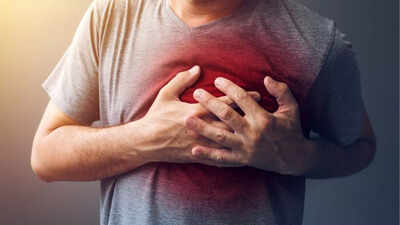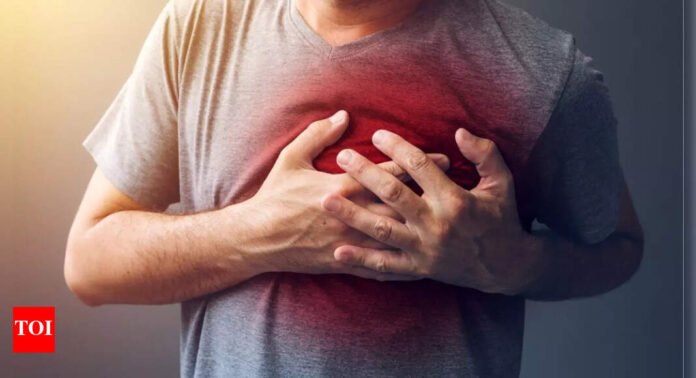Understanding Heart Attacks: Warning Signs and Heart-Healthy Diets

Heart disease is a major health issue. It caused 17.9 million deaths in 2023. Heart attacks and strokes were responsible for most of these. Knowing the warning signs can save lives. Early action is key. Here are 5 warning signs you should never ignore. Get help right away.
Key Warning Signs of a Heart Attack
Chest Discomfort

Chest discomfort is common during a heart attack. It often feels like pressure, squeezing, fullness, or pain in the center of the chest. This discomfort can last for minutes. It may go away and come back. If you feel this, seek medical help immediately.
Shortness of Breath
Difficulty breathing is another key sign. It often comes with chest discomfort but can happen alone. You might feel like you can’t catch your breath, even when resting. Don’t ignore this sign. Seek urgent medical help, especially if you have other symptoms.
Upper Body Discomfort
Pain can spread beyond the chest to other upper body areas. These include the arms, back, neck, jaw, and stomach. The pain may feel like aching or heaviness. It can come on suddenly or gradually. Don’t dismiss it as unrelated. It could be a crucial warning sign.
Cold Sweats

Breaking out in a cold sweat without physical exertion or high temperature is a red flag. Sweating is a stress response. During a heart attack, the body triggers a ‘fight or flight’ response. This sign, along with other symptoms, needs immediate medical care.
Feeling Lightheaded
Lightheadedness is a warning sign of a heart attack. Don’t ignore unexplained fatigue, weakness, or dizziness. Women are more likely to feel extremely tired. If you feel unusually faint or exhausted, especially with other symptoms, seek help immediately.
Diets for Better Heart Health
DASH Diet

The DASH diet focuses on heart health. It stands for Dietary Approaches to Stop Hypertension. Studies show it improves heart health. It lowers the risk of heart failure and reduces blood pressure. This diet includes:
- Fresh fruits and vegetables
- Lean proteins
- Low-fat dairy
- Beans, nuts, and vegetable oils
It also limits sweets and foods high in saturated fats.
Mediterranean Diet
The Mediterranean diet is one of the best diets for heart health. It focuses on:
- Fruits and vegetables
- Whole grains
- Nuts, fish, and olive oil
- Beans and legumes
- Low-fat or fat-free dairy products
- Fish and poultry
It limits red meat and processed foods. This diet can significantly lower the risk of heart disease.



